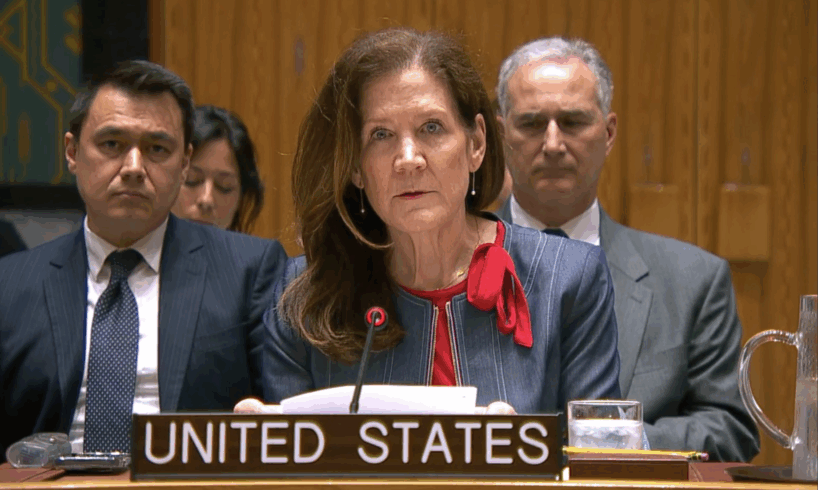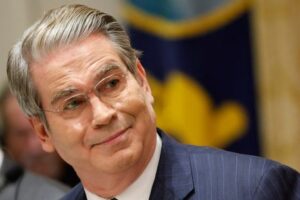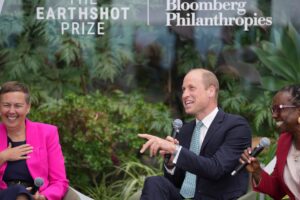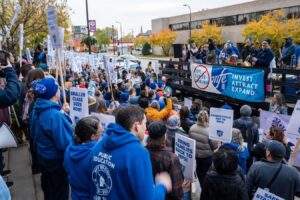
Ambassador Dorothy Shea
September 9, 2025
Ambassador Dorothy Shea
Acting U.S. Representative
New York, New York
AS PREPARED
Good evening, everyone, and welcome! Let’s give it up for the West Point Benny Havens Band!
Good evening, President of the General Assembly Baerbock, Under Secretaries General, Assistant Secretaries General, excellencies, distinguished guests, and friends, welcome!
I’m thrilled you can be here as we gear up for the 80th session of the UN General Assembly. This milestone offers us a moment to reflect on the founding principles of the United Nations and to chart a course for its future.
The United States approaches this session with a clear vision, rooted in three enduring priorities: peace, sovereignty, and liberty. These principles are not just the foundation of the UN Charter—they are the foundation of a stable, secure, and prosperous world. As a founding member of the United Nations, the United States has long been its strongest supporter.
We have led in diplomacy, global engagement, and funding, and we remain committed to the UN’s role as the premier venue where sovereign nations come together to address shared international challenges. However, we must also acknowledge that, over the past 80 years, the UN has at times strayed from its original mandate.
Now is the time for bold reform. The United Nations must return to its core purposes, above all the maintenance of international peace and security. It must become more efficient, more effective, and more accountable to the Member States it serves. The United States is committed to advancing these reforms, and we invite all of you to join us in this effort.
Let me say a few words about the three core priorities underpinning our agenda.
First, the United Nations exists to preserve peace and prevent conflict, and this mission remains as critical today as it was in 1945. To achieve this, the Secretary-General must actively use his good offices to resolve conflict.
Peacekeeping missions must be transparent, accountable, and results-driven. They must have clear goals, measurable progress, and responsible resource allocation.
Second, the United States firmly believes the sovereignty of nations rests at the foundation of the international system. The UN must respect the independence of its Member States and avoid imposing burdensome regulations or policies that stifle innovation, impede economic growth, or infringe on national decision-making. Sovereignty is not a barrier to cooperation; it is the foundation upon which meaningful collaboration is built.
And, third, liberty is the bedrock of peace and prosperity, and the United States will always be a steadfast defender of natural and unalienable rights. The freedoms of expression, association, peaceful assembly, and religion are not just rights—they are the lifeblood of a free and open society. The United States will not tolerate efforts to suppress these freedoms, whether through government censorship, Internet shutdowns, or the silencing of political opposition.
The entire United States Mission and I stand ready to work with you in pursuit of these ideals. The broad team of experts the United States assembles for UNGA every year reflects how seriously we take the occasion.
High-level week is the pinnacle of foreign policy, and we bring our most effective diplomats to New York for the occasion. It’s a unique opportunity to showcase American excellence and to pursue our policy priorities. With that in mind, I’d like to introduce a few members of our UNGA leadership we have with us tonight.
First, let me welcome our White House Public Delegate for UNGA 80, Tammy Bruce, who many of you may already know from her time as Spokesperson for the Department of State and who has also been nominated to be the U.S. Mission’s next Deputy Representative to the UN. Welcome, Tammy!
The wide array of topics on the UNGA 80 agenda also demands that we draw from a deep pool of foreign policy experts. Allow me to introduce our outstanding regional Area Advisors:
Louis Bono for European Affairs, Paul Folmsbee for Western Hemisphere Affairs, Michael Heath for East Asian and Pacific Affairs, Christopher Henzel for Near Eastern Affairs, David Johnson for Central Asian Affairs, and Patricia Mahoney for African Affairs.
We are also joined by the six executive officers from the United States Mission who are respectively dedicated to UNGA’s six committees: Katherine Ring (1), Faith Kroeker-Maus (2), Maria Apud (3), Dan Fogarty (4), Paul Hanna (5), and Dorothy Patton (6).
As we look ahead to the eightieth session of the UN General Assembly, let us approach this milestone with purpose and determination. Together, we have the opportunity to strengthen the United Nations, uphold its founding principles, and advance values that unite us all. Thank you for your commitment to this shared mission, and I look forward to working with each of you in the days and weeks to come.
Thank you again for coming, and now it’s time to have some more fun with the music of the West Point Benny Havens Band!





